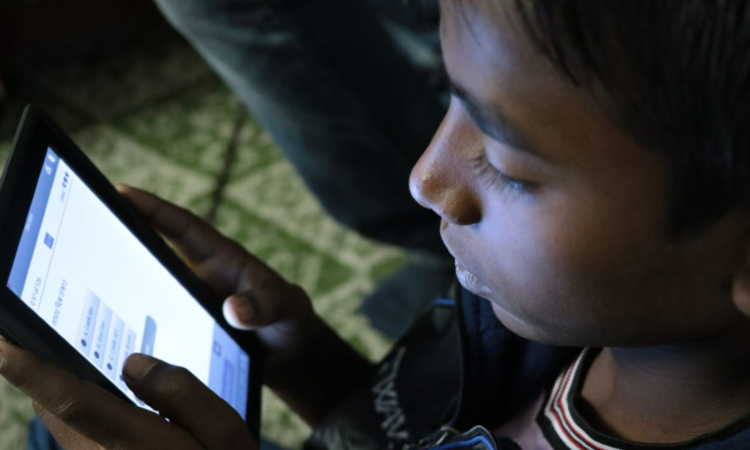How IBM India built an AI-based chatbot to help students learn English in rural Bengal – The Indian Express

When a group of IBM India employees, including data scientists and communication experts, volunteered to work on a tech solution that could help students learn the English language, the challenge was to figure out what that solution would be. After months of brainstorming, the team started working on “Professor Idiom”, an AI-powered Chatbot developed for Abheda Foundation, an NGO based in Kolkata.
“When we thought of creating a chatbot, the problem was to fix a topic, because if you want to talk to an open-ended chatbot it could be very difficult to build,” Sourav Mallik, AI – Data Scientist & IBM India volunteer, tells indianexpress.com in an interview. “So we decided to go ahead with Idioms.”
Mallik, who headed the project, says he and his team had thought about multiple ways to design a solution that teaches students the English language, especially those from semi-urban and rural areas.
During the early phase of the project, there had been discussions on creating videos to be distributed through WhatsApp and Facebook Messenger, considering the reach of both platforms in India. The team also thought about developing an app, but decided against it as the common consensus was that the app would divert attention and focus instead of engaging students within the age group of 10 to 16.
Discussions to develop an AI-based chatbot started in 2019, when the Abheda Foundation, an NGO run by a group of retired IT professionals providing digital education to students from rural parts of Bengal, approached IBM to incorporate artificial intelligence and machine learning capabilities in the next version of the app.
Developing a conversational AI-powered chatbot seemed logical, says Mallik. Chatbots are essentially computer programmes that imitate human conversations using artificial intelligence, or AI. With “Professor Idiom”, a student can send a chat asking for the meaning of an idiom in their local language and the bot will reply with the answer in English. “When we were developing a chatbot, we were actually developing a persona. The persona over here was Professor Idiom, a witty professor who likes to joke and tells a good story,” Mallik explains.
“With the chatbot, we could continue a conversation for 10 to 15 minutes to find out how well a student can converse in English,” Mallik said. He says a chatbot is a better way to learn the English language as you have the liberty to express your feelings which are missing when you use English teaching apps or watch tutorial videos.
How long does it take to develop the AI-based chatbot? “It took us five weeks to have the first draft ready,” Mallik says, adding that the most difficult part was to develop the content, which had taken anywhere between three to four months. Although a beta release, for now, students can access “Professor Idiom ” by activating ‘Google Assistant’ on their Android devices. There are plans to make the chatbot available to larger users after the production release, but for now, the “Professor Idiom” is being extensively used by Abheda Foundation students in rural Bengal.
As AI continues to advance, so will the ability of the chatbot to get better at conversations. Mallik and his team are in the process of collecting data and this will help not only monitor the student’s progress but also improve the chatbot. About 90 per cent of Abheda Foundation’s 200 students are using “Professor Idiom”, and this small number, Mallik says, makes it easier to analyse the data and keep improving the AI-powered chatbot.
Despite advancements being made in artificial intelligence and machine learning, Mallik says AI won’t replace teachers at schools. “It’s not possible,” he says. “The best way is a semi-supervision model.”
“Even with the bot, you cannot get the expressions or see whether that particular student is able to understand or not. But if you are actually teaching somebody, you have those qualities to understand if a student is grasping the knowledge,” explains Mallik.
Chef with most Michelin stars, Alain Ducasse on his journeyPremium Story
Stories of Sunderbans brought alive through theatrePremium Story
Remembering Ustad Rashid KhanPremium Story
Manoj Bajpayee, Konkona Sen interview on acting togetherPremium Story
Savouring food, cultures and sites on the roadPremium Story
What the animal world teaches fathers about raising childrenPremium Story
Killer Soup reviewPremium Story
Akash's journey from basti to rugby club in DallasPremium Story
Merry Christmas movie reviewPremium Story
Padmini Kolhapure interviewPremium Story

 Anuj Bhatia<p class="p2">Anuj Bhatia is a personal technology writer at Indianexp… read more
Anuj Bhatia<p class="p2">Anuj Bhatia is a personal technology writer at Indianexp… read more







